The meeting was held in the most impressive government building in town, in an upper room looking over the main plaza. Several different government researchers in a row stood and began reciting numbers from their slides packed edge to edge with data. The audience, many rural and indigenous community members and leaders, listened attentively, confused.
My wife and I arrived in Bolivia’s cold high plains with an MBA and an Environmental Engineering Master’s, but without a job description. The idea was to surrender the justifications for development work based on predefined metrics in favor of a posture of accompaniment.
The numbers were water quality data from a government inspection of the waters of the Bolivian altiplano, a vulnerable watershed known by the acronym TDPS—Titicaca, Desaguadero, Poopó, and Salar de Coipasa. The watershed is endorheic: a closed system without an outlet to the sea, its high plains cupped like a bowl below the peaks of the East and West Cordilleras of the Andes. At an elevation above 12,000 feet, these mountain plains were once fruitful agricultural lands and productive fisheries. But ongoing drought, centuries of mining, and poor water management have left it dusty and barren. Streams of acidic mining waste crisscross the perimeter. The once vast Lake Poopó has been converted to a few inches of muddy water seeping across an expanse of salt. A water crisis with no end in sight.
Many rural communities in the altiplano have organized and denounced large-scale mining activities for the degradation of their water and fields. Community pressures and concerns for future water security in the region thus motivated the TDPS inspection and the event was held to present initial results to the public. Maps and spreadsheets flew across the screen, the presenters announcing pH, conductivity, turbidity, and dissolved oxygen levels in rapid monotone.
The campesinos in the TDPS meeting would tell you that they are working to organize and make their voice heard. They are moving the agenda of their local leaders for more just water services and environmental controls.
A large part of my job, since moving to Bolivia, has been trying to define what exactly my job is. It became clearer during the question and answer session of the TDPS presentation a few months ago.
“We need clearer explanations!” one frustrated man stood and said into the microphone. “What is pH? We don’t understand this.” Almost simultaneously, a coworker from the small environmental justice NGO I work with turned to me and asked, “What do they mean when they say ‘conductivity’?”
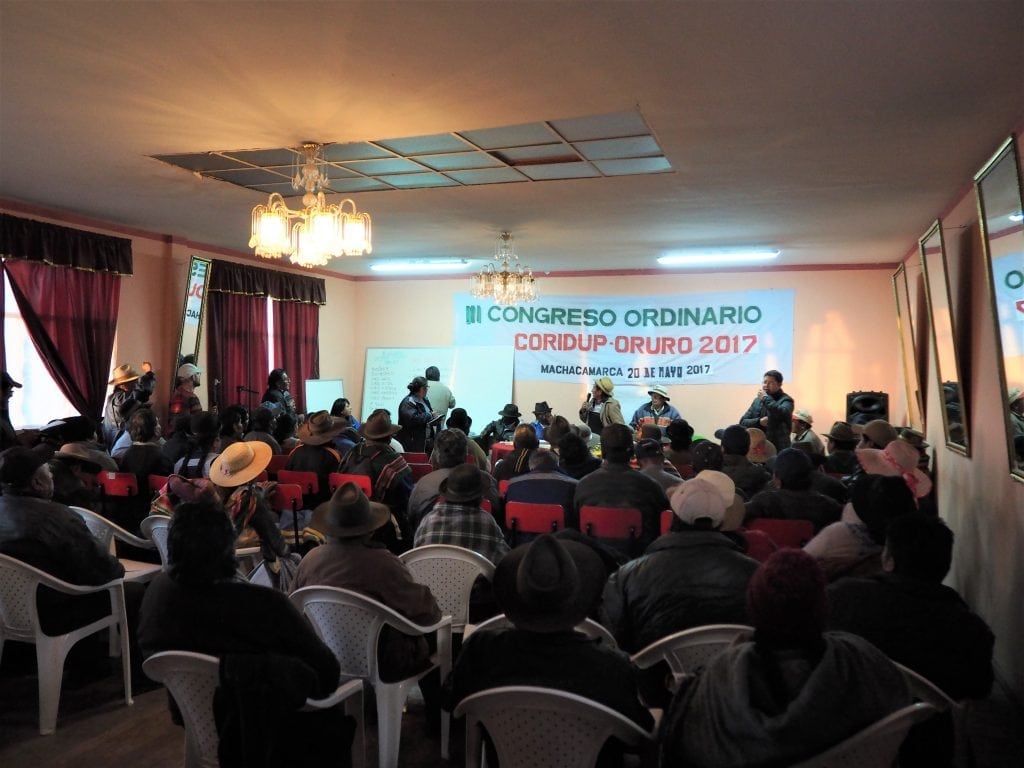
A local, grassroots environmental advocacy group holds an organizational meeting in the Bolivian altiplano. Photo by Riley Mulhern
My wife and I arrived in Bolivia’s cold and dry high plains with an MBA and an Environmental Engineering Master’s, but without a job description. The idea was to surrender the oft-espoused justifications for international development work based on results and predefined metrics in favor of a posture of accompaniment. Our inspiration drew itself from the liberation theology thinking laid out by Latin American priests Oscar Romero and Gustavo Gutierrez. We set out to prioritize basic proximity and relationships with the poor, without an outside plan; to take a back seat in effecting change, to observe and yield our service to local efforts along the way.
Easier said than done. A stance of accompaniment may seem woefully inefficient to many engineers, even frivolous in its lack of direction. There have been times I have felt so myself, seemingly wasting months at a time by all standards of productivity I have learned, trying to discern how to best be of use. Building meaningful relationships of trust through which change can be creatively and collaboratively built is a task of patience anywhere, let alone across enormous cultural gaps. In attempting to ameliorate situations of pressing poverty and acute suffering, the slow work of relationships may at times seem merely ancillary or altogether unimportant.
The poor don’t just want someone to come drop off a piece of hardware.
But that impulse could not be more wrong. Too many foreigners come to Bolivia with too many ideas for projects to help the water crisis. I’ve seen projects and proposals for rainwater harvesting, reverse osmosis, solar distillation and others. Their work seems urgent, but they leave the essential reality unchanged. The poor don’t just want someone to come drop off a piece of hardware. They want someone who comes as their friend, who asks what they are doing to improve their lives and the lives of their children, and who will walk with them in that work. The campesinos in the TDPS meeting would tell you that they are working to organize and make their voice heard. They’d say that they are not satisfied with the government’s half-hearted inspections and reports. They are moving the agenda of their local leaders for more just water services and environmental controls. As Father Gutierrez writes, “There is no true commitment to solidarity with the poor if one sees them merely as people passively waiting for help.”[i]
The problem remains not in the lack of foreign projects, but in the gaps in local agency seen at the TDPS inspection event. How can these communities become fully engaged and capable owners of their own water resources if “pH” remains coded knowledge belonging solely to the government and foreign engineers? A recently published study looked at 13 communities in an active mining region of the altiplano and found that almost all were characterized by “a perception that they and/or their livestock have suffered ill health due to water contamination.” Yet they had little to no education or training on water issues and no autonomy in decision making despite some level of local social organization.[ii] In this context, rainwater tanks, although not unhelpful, still hang like black, plastic ornaments on the status quo as long as Bolivians are merely manpower for foreign ideas and not owners of the processes of change.
This is more than “teaching a man to fish,” which still smacks of an outside savior parachuting in with a new idea.
On a recent visit to a remote agricultural cooperative, I was handed a brochure that proudly read: Dueños de nuestro propio desarrollo. Owners of our own development. I was struck by the slogan since it is so rarely so. Too often, the poor lack freedoms even in the processes meant to improve their lives. When engineers and technical experts are expected to design, fix, and solve, to take care of the issue from a distance, not enter into it, it is too easy to monopolize and justify foreign or expert ownership. But the end doesn’t always justify the means in development. Even the smallest locally owned steps of change are better than sweeping efforts that neglect these freedoms. Engineers need to learn to accompany change, not control it. The question is how.
My coworkers and the communities we work with would say that the answer lies in helping people understand what pH and electrical conductivity mean, why dissolved oxygen is important and reported as a percentage, and the risks of fecal coliforms or heavy metals in drinking water. That is, whatever the field—earthquake-resistant building design or the principles of latrine construction, website development or data management, micro-irrigation or urban gardening—the answer should inherently include a transfer of knowledge. Knowledge enables the poor to enter the privileged spaces of decision makers with power in their hands.
This is more than “teaching a man to fish,” which still smacks of an outside savior parachuting in with a new idea. The Bolivian director of a local environmental advocacy network that we work with put it this way: “We need alternatives: proposals that emerge from the communities themselves. Someone from the outside can come and say, ‘Do this,’ but it will never happen.” Refocusing on knowledge transfer is not a license to define what knowledge needs to be transferred. Rather, what we may call an “engineering of accompaniment,” waits to understand where the gaps in agency are and collaboratively define what knowledge is required.
The longer I simply accompany this water crisis and the efforts to address it, the more I find I am asked to lead training sessions on water quality and treatment for groups of students or organizations. Despite often feeling deeply inadequate to receive these requests, I have come to realize that they reveal the self-defined needs of the people around me. Thus, my job description has slowly come into focus: to help Bolivian men and women tighten their own grip on change.
My job description has slowly come into focus: to help Bolivian men and women tighten their own grip on change.
Those of us who are drawn to engineering as a response to poverty generally want to be doers, not teachers. The emerging field of “engineering for developing communities” attracts more and more eager, concerned engineering students every year. Many of them want to be the ones to design new technologies for the developing world, or build houses, hospitals or water systems. But such attention to the problems of poverty without the involvement of the poor is precisely what lures us into accumulating ownership and control. We must disabuse ourselves of this sense of ownership and reach toward accompaniment if we are to dig in to where change really occurs, where people are owners of their own development and our projects do not simply decorate the underlying injustices.
A good place to start is in the preposition. We should not aspire to engineer anything for anyone in communities confronting poverty. We need to think of our work as “with.” We need to start thinking of development work in terms of education, training, and knowledge transfer through basic relationships with the poor. Alongside literacy in their technical area, engineers ought to go into the field equipped with the skills of effective communication, participatory methods, and critical pedagogy. Our goals and metrics for success should prioritize the fullness of this transfer of knowledge—and thus transfer of power—over and above the completion of individual projects.
As any educator will also tell you, this is not a light or romantic undertaking. The work of education is often a slow, weary, anxious trudge and requires longstanding commitments to individual people. But accompaniment, walking with, is not to parachute in with quick fixes. It is, in the words of Wendell Berry, to “go down and down into the daunting, humbling, almost hopeless local presence of the problem—to face the great problem one small life at a time.”[iii]
Then, once we are down there a while and the problems are no longer faceless, we realize it is never truly hopeless and that work is being done; that there are coals and a bellows.
[i] Gutiérrez, Gustavo. 2013. “The Option for the Poor Arises from Faith in Christ.” In Michael Griffin & Jennie Weiss Block (Eds.), In the Company of the Poor: Conversations with Dr. Paul Farmer and Fr. Gustavo Gutierrez. New York: Orbis Books.
[ii] French, Megan et al. 2017. “Community Exposure and Vulnerability to Water Quality and Availability : A Case Study in the Mining-Affected Pazña Municipality , Lake Poopó Basin , Bolivian Altiplano.” Environmental Management: 1–18. http://dx.doi.org/10.1007/s00267-017-0893-5.
[iii] Berry, Wendell. 1993. “Out of Your Car, Off Your Horse.” Sex, Economy, Freedom and Community. New York: Pantheon Books.
Riley Mulhern is the technical WASH advisor for a Bolivian NGO and Mennonite Central Committee volunteer addressing issues of contamination and water quality in rural indigenous communities in Oruro, Bolivia. He is from Denver, Colorado and received his B.S. in physics and geology from Wheaton College in Wheaton, IL and M.S. in Environmental Engineering from the University of Colorado Boulder. He has worked previously on water projects in Nicaragua and Haiti.
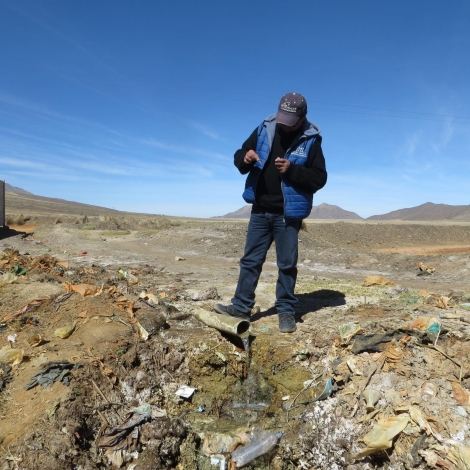
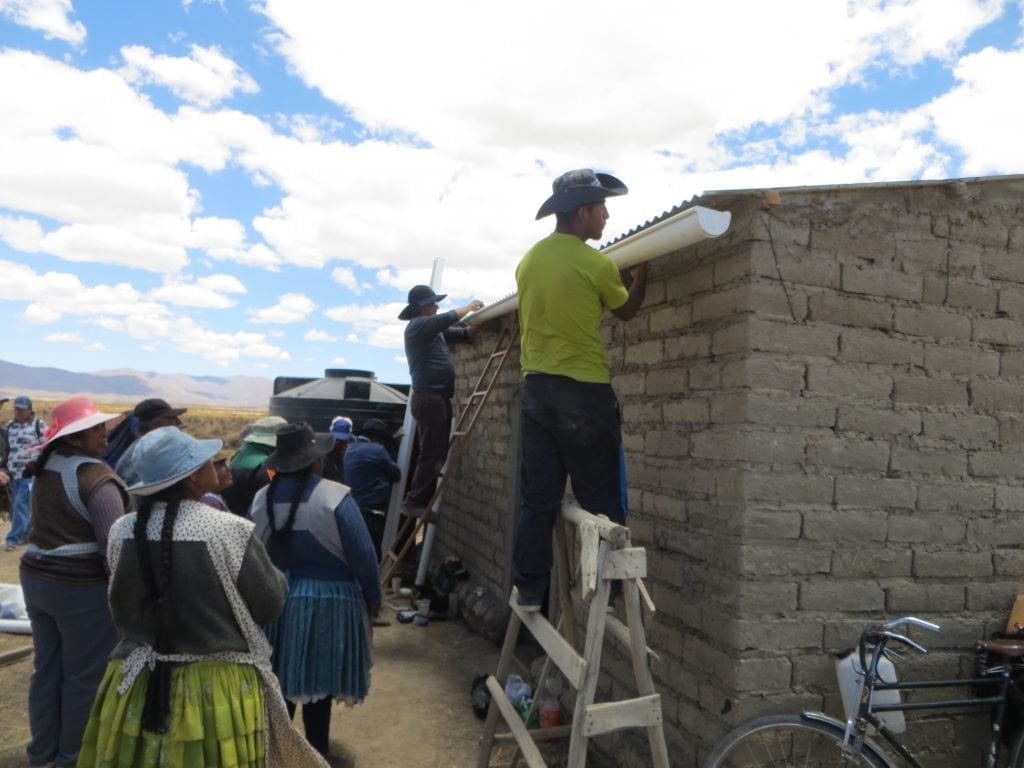
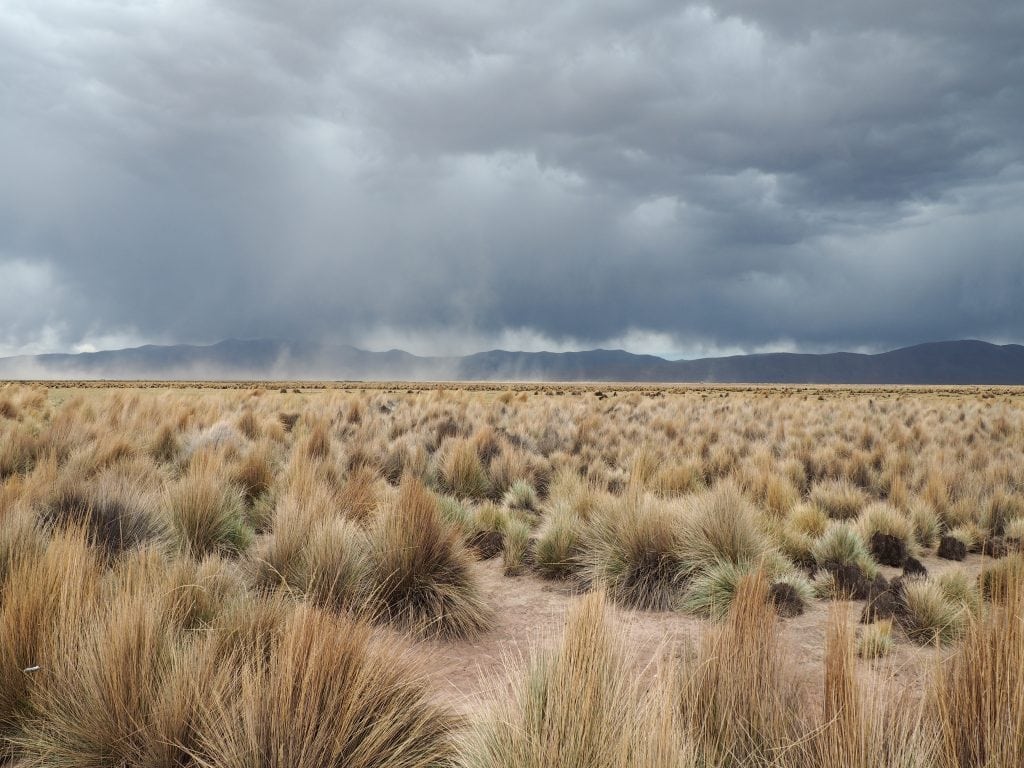
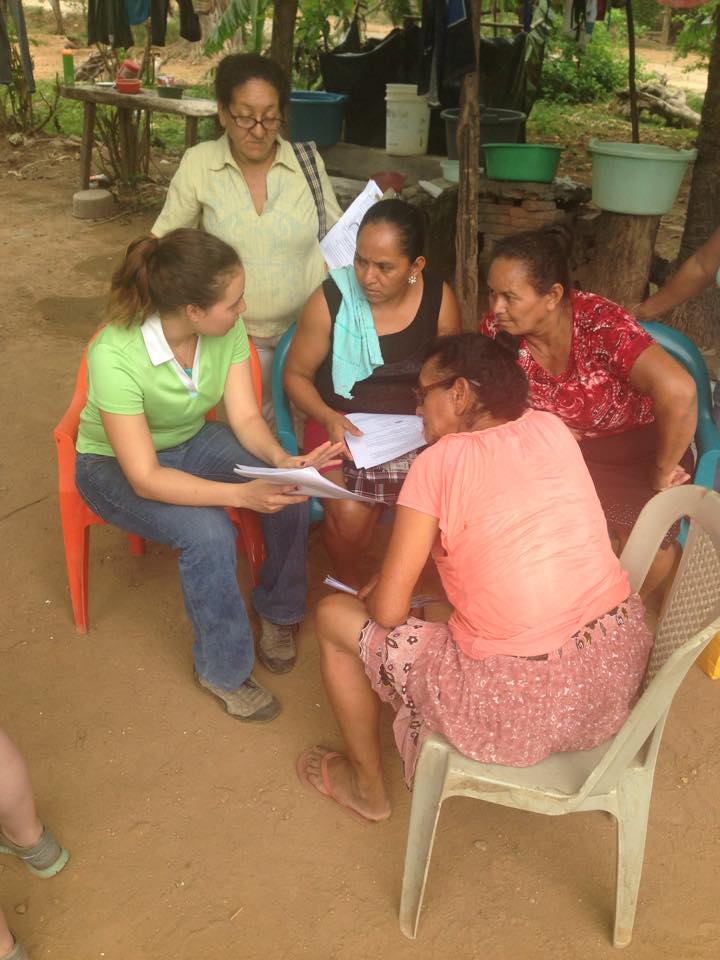
Riley,
Wow – your journey is incredibly inspiring! Thanks for sharing what you are learning with such eloquence.
John